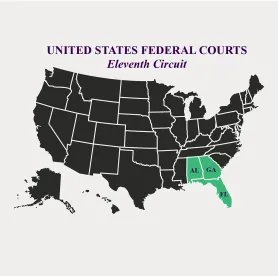A court in the Southern District of Florida recently held that the plaintiff in a TCPA suit was not the “called party” under the statute because he received the calls in question only because his cousin rerouted them to the plaintiff’s phone. Thompson v. Portfolio Recovery Associates, LLC, No. 19-62220 (S.D. Fla. Apr. 25, 2020).
In Thompson v. Portfolio Recovery Associates, LLC, Plaintiff Andrew Thompson brought a TCPA suit against PRA—a debt collection company—for seventeen calls made to the Plaintiff’s cousin’s VoIP number that were automatically rerouted by the Plaintiff’s cousin to Plaintiff’s phone and answered by Plaintiff.
PRA moved for summary judgment based on two separate theories. First, PRA claimed that, because PRA dialed Plaintiff’s cousin’s number, Plaintiff was not the “called party.” Second, PRA argued that the program it used to place the phone calls was not an ATDS because it did not use “randomly or sequentially generated numbers.” The Court agreed with both of PRA’s arguments and issued a short opinion granting PRA’s motion for summary judgment.
Regarding the “called party” argument, the Court noted that decisions on the issue were “thin,” but agreed with the rationale in Klein v. Commerce Energy, Inc. (256 F. Supp. 3d 563 (W.D. Pa. 2017)) cited by PRA. The Klein court stated that “where a person sets up the forwarding of calls made to a number assigned to one service to then forward to a number assigned to another service it is the person setting up the forwarding calls who in essence is making the call to the second service.” Based on this logic, the Court reasoned that the cousin actually placed the phone calls to Plaintiff’s phone, not PRA.
The Court went on to hold, in any event, that PRA’s dialing system—the Avaya Proactive Contact—was not an ATDS. PRA argued that because the Avaya system lacked the capacity to generate random or sequential numbers and then dial them, it was not an ATDS based on the Eleventh Circuit’s recent decision in Glasser v. Hilton Grand Vacations, LLC, 948 F.3d 1301 (11th Cir. 2020). The Court held that the Avaya system did not have the defining characteristics of an ATDS—“the capacity to dial numbers without human intervention.” The Court also reasoned that it would not make sense for PRA to use an ATDS to make its calls because PRA is a debt collection company and would not benefit from generating numbers in the way an advertising company would. Curiously, the Court did not cite Hilton in support of its ruling that the system was not an ATDS.





 />i
/>i

